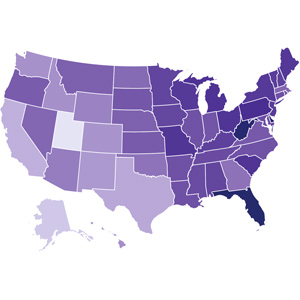Winter 2020/2021 Vol. 10 Issue 04
-
From the Editor-in-Chief
Intercepting Cancer by Tackling PrecancerResearch on premalignancy is needed to fully tap the potential of cancer interception.
by William G. Nelson, MD, PhD
-
Your Cancer Guide
New Rules of EngagementAs the pandemic continues, cancer patients and survivors must weight fears of possible infection with their need to live fully.
by Hester Hill Schnipper
-
Caregiving With Confidence
Anticipatory GriefWhen a loved one has advanced cancer, it's common to mourn the loss that hasn't happened yet.
by Karen J. Bannan
-
Policy Matters
Cancer Scientists Support COVID-19 ResponseResearchers study ways to improve telehealth capabilities, clinical trials and health disparities.
by Trevan Locke, PhD
-
Are Liquid Biopsies Ready for the Clinic?
Sophisticated blood tests offer a less invasive way to characterize cancers, guide treatment and catch recurrences sooner, but tissue biopsies remain the gold standard.
by Kendall K. Morgan
-
Getting Serious About Depression
Cancer survivors have higher rates of depression than the general population, but many don't know help is available.
by Cameron Walker
-
Multiple Myeloma: Choosing Your Path
New therapies provide hope and options for people as they monitor and manage this incurable blood cancer.
by Tara Haelle
-
Survivor Profile
A Voice at RiskRob Paulsen has voiced hundreds of animated characters, but as he prepared to return to a beloved role, cancer threatened his livelihood.
by Bradley Jones
-
Q&A
Ethics in PracticeRebecca Dresser explores the history and burdens of clinical trials through the lens of a cancer survivor and medical ethicist.
by Marci A. Landsmann
-
Sound Advice
Your Questions, Our AnswersExperts answer questions about limiting exposure to the coronavirus, how to talk about a cancer recurrence with loved ones, and strategies for dealing with a loss of health insurance.
-
Get Involved
Smiling FacesRich Nardiello seeks to bring a smile to children with cancer.
by Bradley Jones
-
Facts and Stats
2020: Cancer in the U.S.Data collected from cancer registries help chart the national burden of cancer.
by Bradley Jones
In a new play, the pain of cancer can be a chance to laugh.
by Ashley P. Taylor
Melanoma Risk in Childhood Cancer SurvivorsPeople treated for childhood cancer found to have twice the risk of developing melanoma as an adult.
by Cameron Walker
Online Second OpinionsMore than half of patients who participated in a program offering online second opinions were recommended a change to their treatment plan.
by Eric Fitzsimmons
Musical Toxicity an Effect of Cancer TreatmentStudy finding cancer treatment affects ability to play or sing music highlights need for physical therapy, experts say.
by Kyle Bagenstose



















